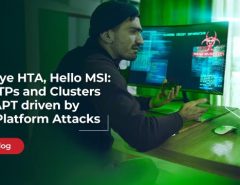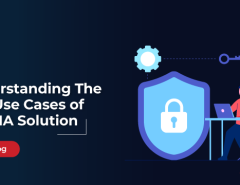Even those with a passive interest in cybersecurity have a fair idea of how hackers can take control of a system. This is mostly done through malware – unsuspecting users somehow download or access a malicious file or a script. This script opens blackholes into the system allowing access to hackers.
In this sequence of events, a good cybersecurity solution will step in right at the beginning. It will detect the malicious file and prevent the user for accessing it or even if it is downloaded, quarantine it so it cannot access the other files.
Invisible danger
However, cybersecurity criminals are getting even craftier by the day and they have moved on to different avenues for hacking systems. A new technique that has been developed recently is gaining access to systems through fileless malware.
But what is a fileless malware? As explained by Seqrite in an earlier article, fileless malware refers to a cyberattack where no ‘files’ are involved. In other words, unlike the scenario described above, a fileless malware does not place an executable file on the disk. It instead operates in the computer’s internal memory i.e. RAM. This means traditional antivirus software will have a hard time detecting a fileless malware infection because there is no ‘malicious file’ to detect. By using a fileless malware, attackers can hide their presence in your computer and cause all sorts of damage (steal information, download additional malware, gain access to higher privileges, etc.) without raising an alarm.
The modus operandi
How does fileless malware operate? Quick Heal Security Labs have run analyses of some cases of fileless malware which can found in detail here and here. These malware have some unique techniques – they use malicious script files such as JavaScript, HTA, VBA, PowerShell, etc. for in-memory or non-malware attack. In one analysis, it was observed that an attacker used an XML script with a Windows Script Component (WSC) to deliver a malicious payload, which had the ability to easily modify obfuscation. A small XML script with a set of instructions was used to download another script file from compromised websites.
In another case, it was observed that fileless malware, also known as PowerShell Malware, used PowerShell to load Base64 encoded shell scripts stored in the Windows registry leading to Click Fraud Malware campaign.
Why choose Seqrite?
To protect against these kinds of fileless malware, it is advisable to use solutions like Seqrite. Seqrite Endpoint Security Enterprise and Quick Heal Total Security received a BEST+++ Certificate from AVLab, an independent organization that conducts tests on security software for corporate networks and individual user devices, on the Fileless Malware Protection Test.
These certificates demonstrate and recognize Quick Heal’s prowess in preventing fileless malware attacks. Quick Heal’s advanced Behavior Based Detection system (BDS) monitors applications like PowerShell, Office applications, rundll32.exe etc. which are widely used for file-less activity. BDS modules also checks for suspicious command-line parameters of critical applications which help to stop file-less attacks at initial stages. BDS successfully blocks some advanced and sophisticated techniques by attacker like cross-process injection, process-hollowing, reflective dll injection. An effective way to find fileless malware is scanning process memory for malicious code; Quick Heal’s memory scanner continuously checks process memory for such bad code and takes appropriate action on it.
Other methods that can be taken by end-users to prevent these kinds of attacks are:
- Use of a security solution that puts layers of defense between your computer and malware threats. Keep the software up-to-date.
- Keep your Operating system and other software such as Adobe, Java, Internet browsers, etc., up-to-date.
- Avoid websites that throw unnecessary or lots of advertisements.
- Install software only from genuine and trusted sources only.
- Do not click on links or download attachments received in unknown, unwanted or unexpected emails.
- Always keep a secure backup of your important data.
As an IT security partner for your business, Seqrite provides comprehensive security from advanced cyber threats. To know more




